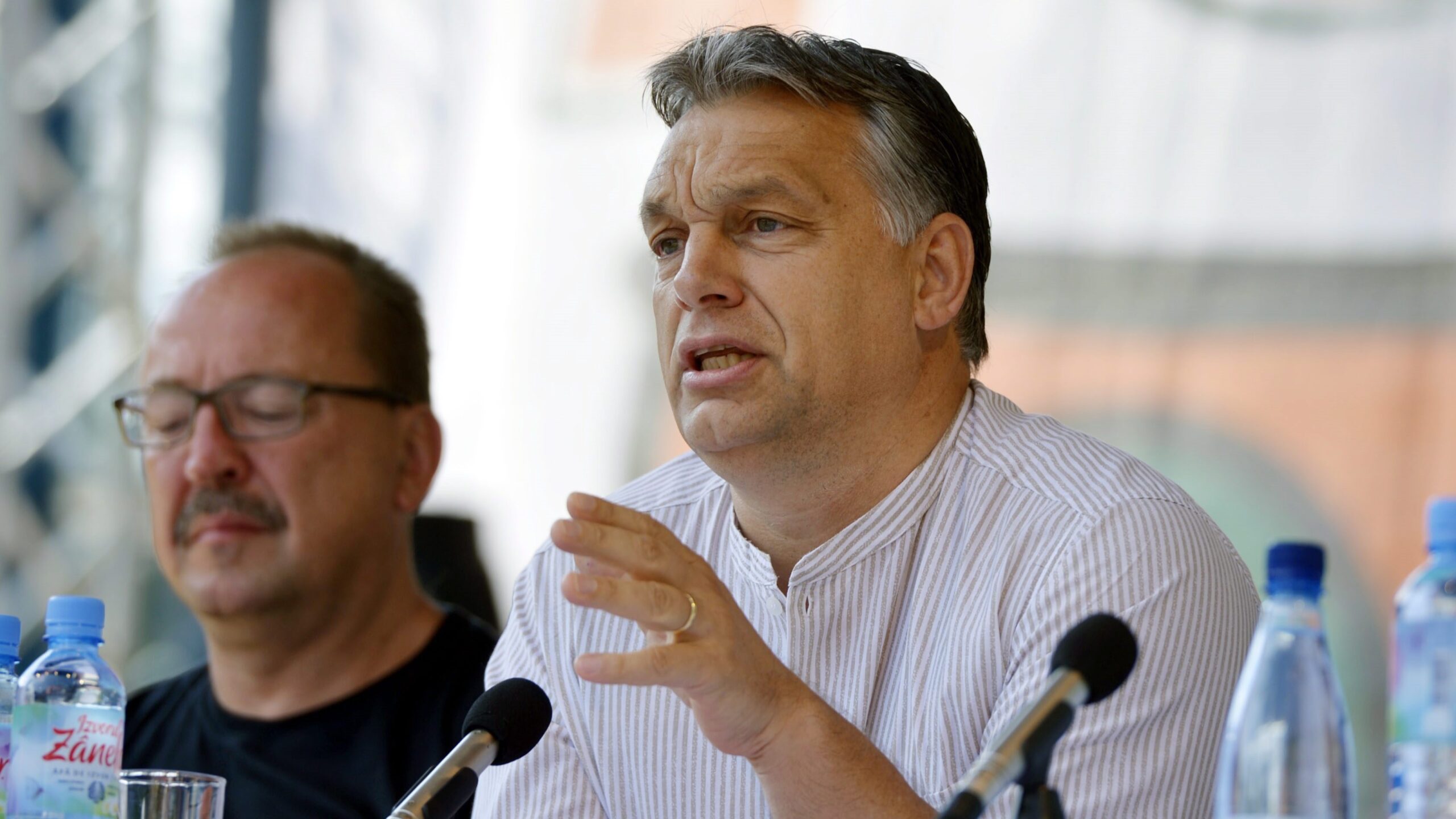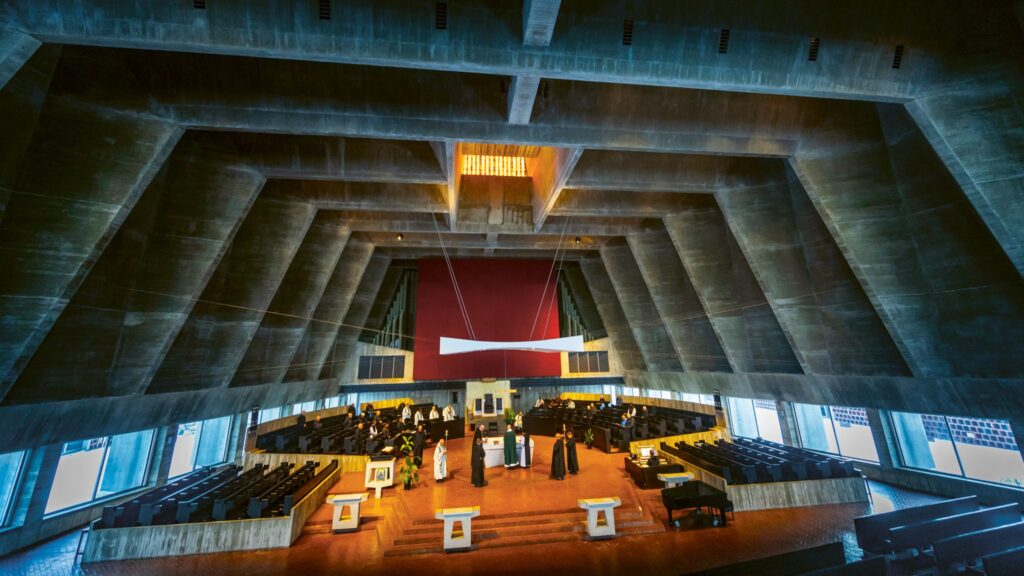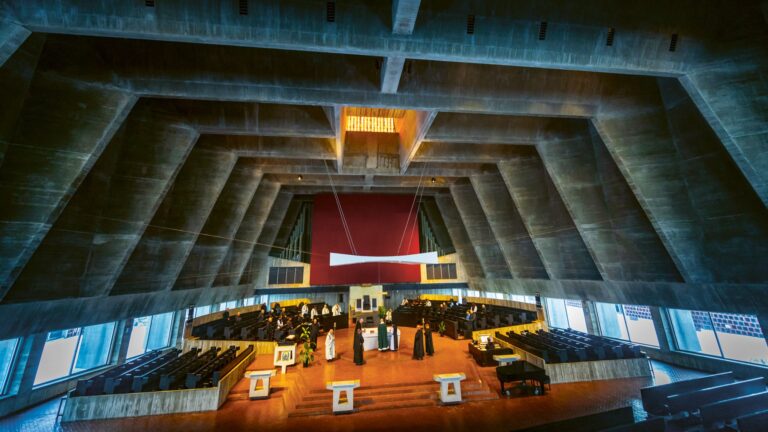Since it was first organized in the 1990s, the Bálványos Free Summer University and Student Camp has become one of the most prestigious annual Hungarian political events. Initially intended to serve as a platform for Hungarian–Romanian dialogue as well as maintaining connections with the Hungarian minority living in Romania, by now the Summer University also became a place for political agenda setting. Each year Hungarian Prime Minister Viktor Orbán delivers a speech in Tusnádfürdő (Băile Tușnad) in Transylvania, Romania that aims to set out the Hungarian government’s goals for the next years to come.
Highlights from the Past — Illiberal, National and Christian Visions
The first Tusványos speech that became famous across the Western world was delivered a decade ago in 2014. In the international, and especially Western media, the speech became (in)famous for using the phrase ‘illiberal democracy’ for the first time. Talking about competitiveness in a globalizing world Orbán said: ‘We are trying to find the form of community organisation, the new Hungarian state, which is capable of making our community competitive in the great global race for decades to come;’ he mentioned Singapore, China, India, Russia and Türkiye as examples of ’systems that are not Western, not liberal, not liberal democracies and perhaps not even democracies’ but ’can nevertheless make their nations successful’. He went on arguing that democracies are not necessarily liberal, but the democracies that are liberal are losing their competitiveness and so Hungary ’must break with liberal principles and methods of social organisation’ to ensure the country’s long-term success. Later he highlighted that this idea ’does not reject the fundamental principles of liberalism such as freedom (…) but it does not make this ideology the central element of state organisation, but instead includes a different, special, national approach’.
Five years later, in 2019, building on his 2014 theme, Orbán further elaborated on the idea of an ‘illiberal democracy’. At this time the Prime Minister argued that in 1989 Central Europe had gone through a ‘liberal transformation’, therefore the radical changes that were happening in Hungary, where the country said ‘yes’ to democracy but ‘no’ to liberalism in his assessment, is by nature an ‘illiberal’ or a ‘national’ transformation. These radical changes are necessary so that Hungary could go back to its liberal democratic roots and to its Christian foundations, whilst the West is decoupling from those, he suggested. Acknowledging that the word ‘illiberal’ has negative connotations, Orbán outlined the phrase’s positive meaning—illiberal politics works for Christian freedom, and ‘seeks to preserve everything that liberals neglect, forget and despise’. He concluded that in the last couple of years in Hungary ‘there has been the emergence of an illiberal state and a true model of state and political theory:
a distinctive Christian democratic state’.
In 2010 the government received a mandate to build a new system, a new constitutional order based on national and Christian foundations (which was the topic of his 2014 and 2019 speeches), in 2014 the two-thirds victory gave legitimacy to the government to consolidate this system—after the 2018 elections, in his Tusványos speech Orbán argued that now the government has received a mandate to build a new era – that is, the illiberal transformation of Hungary to a Christian democracy was happening on the basis of a strong democratic legitimacy.
Recurring Topics — Economy, Europe and a Changing World Order
Orbán’s Tusványos speeches always dedicate special attention to the state of the Hungarian economy. Two frequently reoccurring topics are connected to this theme – the need to create a work-based society and to increase national ownership in the economy. As Orbán highlighted, in 2010 ‘Hungary—a country of ten million—had a working population of 3.6 million people, of whom 1.8 million were taxpayers. These people were carrying the burdens of the country on their backs…nowadays [2019] 4.5 million people are working in Hungary, and all of them are paying taxes.’ The fact that the idea of a work-based society is rooted in Christian work ethic is undeniable and is therefore an organic part of the Christian-Democratic principles of the Hungarian conservative government. Hungary’s transformation into a work-based society was facilitated by a number of government initiatives, most famously by cutting the personal income tax rate to record lows (it is now at 15 per cent).
The other theme, integral to Hungary’s economic vision, was powerfully iterated in Orbán’s 2017 speech where he concluded that a country ‘similar in size to us can only be strong if there is a robust majority national ownership in the strategic industries’ and hence the Hungarian government dedicated a considerable effort to increasing the share of Hungarian ownership in the energy, banking and media sectors. The latest step in this process was the acquisition by the Hungarian government’ of the Budapest Airport.
Similarly to the question of the economy, the criticism of the EU has also become a recurring topic in the prime minister’s speeches. This was especially salient in the 2016 remarks. Initially, Orbán criticized Brussels for its failed migration policy, its submission to multiculturalism and its inability to recognize the national security threat posed by mass migration due to its culture of political correctness. While migration is still a persistent theme in his speeches, lately Brussels’ pursuit of woke and gender ideology has also become a central subject of Orbán’s speeches. In 2023 he formulated his criticism of the EU the following way: ‘The European Union rejects Christian heritage, it is managing population replacement through migration, and it is waging an LGBTQ offensive against family-friendly European nations.’ Those nations who oppose the EU’s gender and migration policies will have to face with the Commission’s political activism, Orbán noted. In 2017 the Prime Minister drew attention to the EU’s left-wing political activism and bias, emphasizing how Poland was the ‘main target in order to weaken, to destroy, to break national governance’ and hence urged the defence of national state sovereignty from Brussels’ efforts to the contrary. Most recently it is
the EU’s inability to enhance its strategic independence from the US
that has been fiercely criticized by Orbán. The latter point has become an integral part of Orbán’s speeches since the Russo–Ukrainian war and was most powerfully elaborated on this year.
Upset by a European Union that has no vision for its role in the world, as a prelude to the 2024 speech, in past two years at Tusnádfürdő Orbán dedicated special attention to the shifts in the balance of powers and how it is changing the world, while he also warned the audience of the dangerous period the world has entered. In 2023 he described Europe as a former boxing champion who still proudly shows his championship belts but is now afraid to enter the ring again. In 2022 Orbán argued that the West does not realize that over the past decades the Chinese, Indian and the Orthodox world has also modernized, limiting the West’s ability to spread its own values. In part this was illustrated by the unexpected resilience of the Russian economy in the face of sanctions and the West’s inability to destabilize it. The gradual articulation over the past years of the vision of a world order in transit and the West, and especially the EU’s, inability to be an independent, strong actor, set up the scene for this year’s prime ministerial speech in which he presented what he dubbed Hungary’s Grand Strategy to address the challenges of the emerging global order.
2024 — Hungary’s Grand Strategy to Face the Challenges of a Changing World
This year, honouring the political festival’s initial aim to serve as a platform for dialogue between Hungary and Romania, the Hungarian Prime Minister highlighted how relations between the two countries improved over the last year. Viktor Orbán stressed that Romania is now Hungary’s third most important trade partner and emphasized that Budapest is ready to support Romania’s Schengen accession. He also expressed hope that soon a high-speed rail link can be established between the two countries’ capitals. While relations between Budapest and Bucharest improved, Brussels continues to be hostile towards Hungary’s policies and especially its peace mission. Viktor Orbán argued that the new reality revealed by the war in Europe is the demise of European politics; the sanctions policy pursued by Brussels undermines the continent’s competitiveness, while Germany’s silence on the attack against the Nord Stream pipeline demonstrates its submission to American interests. Rather than continuing the EU’s dependency on the United States, Orbán argued for the strengthening of Europe’s strategic autonomy. Pursuing an independent policy is indispensable since new challengers are rising on the East, and, as a consequence, the world order might change to an extent not seen in the past 500 years, since the discovery of America. The PM further argued that in order for Hungary to be ready for the challenges of this changing global order a Grand Strategy must be pursued. And that grand strategy is, essentially, connectivity—instead of being locked in alliances, Budapest is open to cooperation with all sides, whilst strongly defending its own sovereignty.
Read more on the 2024 Tusványos speech:





